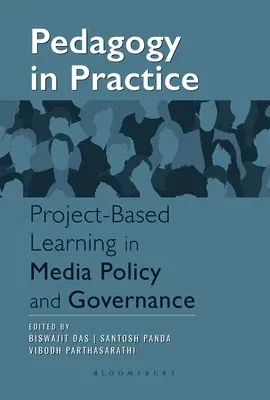The book showcases the application of evidence-based teaching and
learning strategies in the field of media and communication studies,
with specific reference to hands-on projects on media policy analysis.
The intent of the book is to translate theoretical ideas and knowledge
in the light of the new pedagogic developments and effective learning
and teaching designs that can be taken up in any classroom setting and
can be applied to any curriculum in higher and further education. A
precise but comprehensive review has been undertaken in respect of
'media education' and 'pedagogy and teaching-learning strategies' as a
base towards relooking at innovative instructional and learning designs
for disciplinary teachings. Practicing educators of media education and
new media studies authentically report on work-based 'projects' as
'pedagogy' as well as teaching and learning practice for transacting
curriculum at the masters' level, and demonstrate how pedagogic
interventions can ease out learners and instructors to make teaching and
learning handy and engaging. It underlines 'project-based learning' as
one of the good practices in teaching media policy and delivering
practical experiences to students in discerning policy formulations, its
foundations, shifts, and challenges. In short, it may be referred as a
handbook of hands-on projects on media policy analysis. It is also, at
the same time, envisioned as a resource book for similar academic
initiatives, and would be useful across curricula that focus on Media
Studies, Law, and other Social Sciences.

